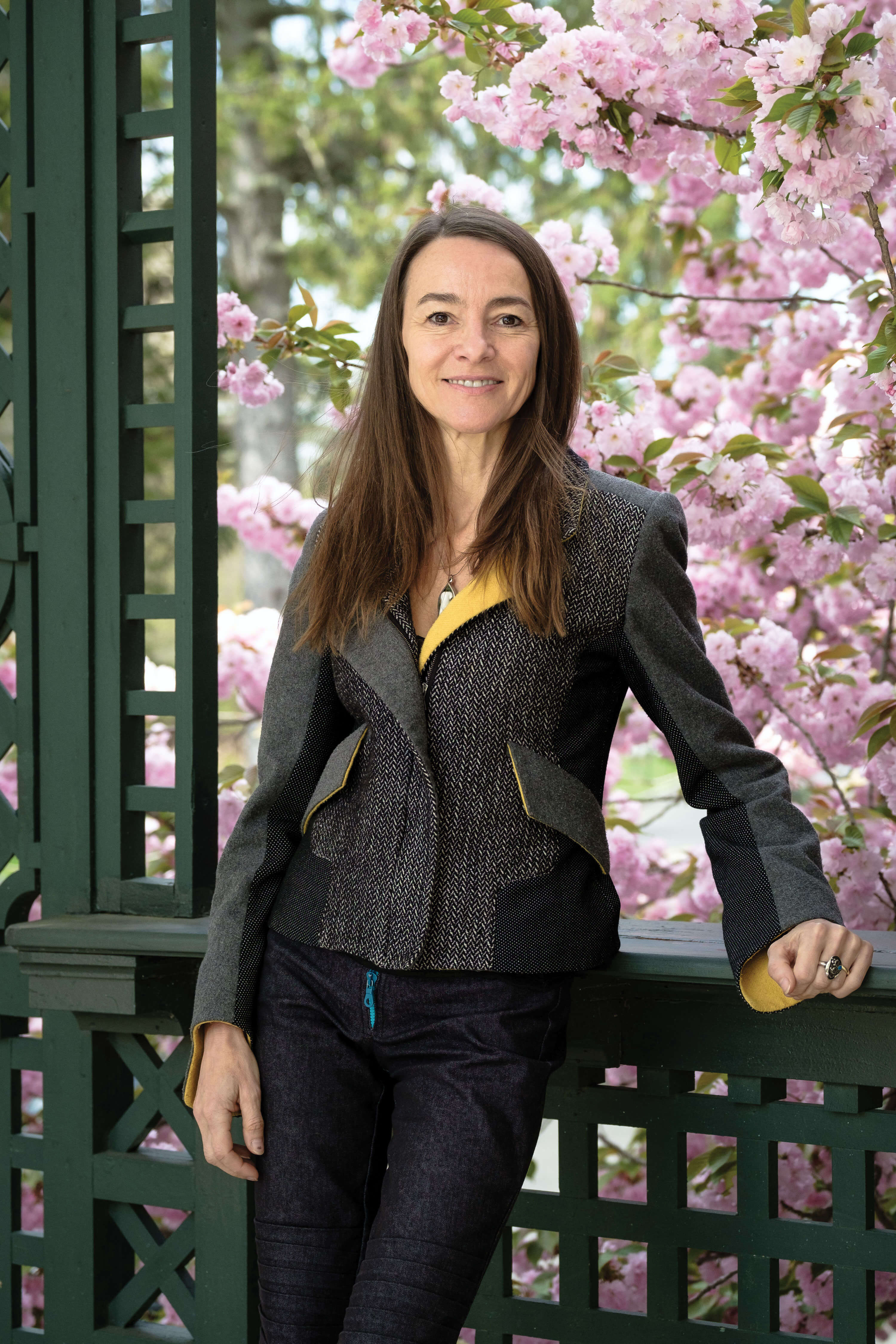
Balancing Duality
Mihaela Moscaliuc reflects on the power of poetry.
The New Jersey State Council on the Arts awarded the 2023 Individual Artist Fellowship for Poetry to Associate Professor of English Mihaela Moscaliuc, lauding her outstanding body of work, which largely focuses on the immigrant experience.
Much of your writing touches on your identity as a “permanent immigrant.” How has emigrating from Romania at age 24 impacted your life’s work?
The experience of emigration/immigration has never ended. Although I reside in the U.S. and my annual visits to Romania are brief, I continue to write from both places and from many kinds of in-betweenness, including some related to language, culture, and family. It is a generative space of double-rootedness and suspension that keeps me alert to change. Sometimes the feeling of not belonging to either place takes precedence and threat- ens to overwhelm, but I have learned how to deactivate it or turn it into a useful resource. That’s when writing comes in.
Why do you think poetry became your outlet in terms of conveying the dualities of your own experience?
I chose poetry for its intensity and succinctness. I like the challenge of finding precise words and clear imagery for experiences filled with hesitation or ambivalence. Poems accommodate contradiction more generously than other genres, I think. I have a tendency to ramble and second-guess myself, so poems form shadowboxes that help me contain the chaos creatively.
You teach a class on representations of Roma (known as “Gypsies,” a label considered by most Roma derogatory) in literature, pop culture, and history. Who are the Roma and what is your connection to them?
The Romani people are the largest and most disadvantaged ethnic minority in Europe, and the term “Roma” covers a number of subgroups (such as Sinti, Kalé, Kalderash, and Gitano.) Roma originated in the Punjab region of India, which they left more than a thousand years ago. Over the centuries, they have been subjected to oppression, genocide, forced sterilization, and systemic discrimination. The misnomer “Gypsy,” which is loaded with pejorative connotations, comes from the erroneous belief that they originated in Egypt. I believe that much of the harm inflicted upon Roma derives from the propagation and circulation of stereotypes, so the course means to educate and change the discourse. I have witnessed the effects of bigotry and racism on Roma who are integral part of my life, so my investment in writing and teaching on the subject has a personal component as well.
Your work highlights the fluidity you feel in terms of not belonging to any one place, culture, or history. Does this insight help you in the classroom?
Definitely. I believe that empathy, which requires that you temporarily step out of the self (to the extent possible) and adopt another’s views and sentiments, can be cultivated. Fortunately, both literature and the experiences of emigration/immigration have trained my mind to make those leaps. In the classroom, whether discussing a text or workshopping a poem, I try to meet students on their ground, or at least halfway, and understand how the view they hold came about. And I guide them toward spaces of inquiry, toward incertitude and ambivalence, toward the disorienting feeling of having stepped into another’s life and perspective.
What role can literature—and more specifically, poetry—play in helping us connect with and understand the experiences of others?
Literature is a repository of human experiences, a portal to understanding ourselves and others. I fear that everything I have to say about it will sound grandiose, but I truly believe that literature teaches us more about the past than history books do, that it invites self-reflection, that it disrupts apathy, ideological intransigence, and egotism, that it prepares us to live and think with nuance, to evolve as thinkers and overall, as human beings. I fear that a nation which loses interest in literature is a nation without a future.
This is the second time you’ve been awarded this fellowship from the New Jersey State Council on the Arts. What does this recognition mean to you?
It is encouraging to see poetry and the art of writing in general be recognized and supported by our state. I am humbled by the honor, energized about my writing, and excited to inspire others to pursue theirs.
What’s next for you?
This summer I’ll be working on the next poetry collection at an artists’ colony in Tennessee, visiting family in Romania, walking Hadrian’s Wall in England, and teaching a poetry workshop at the Chautauqua Institute.